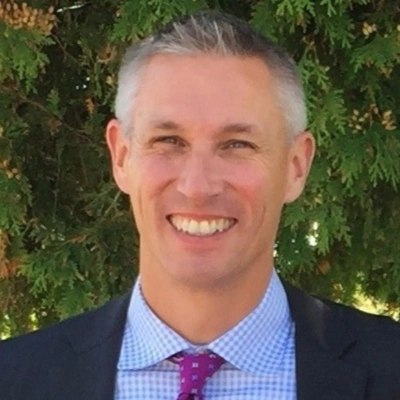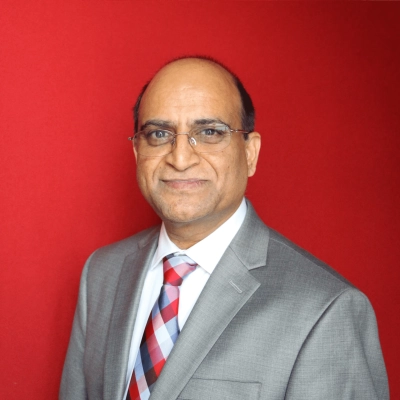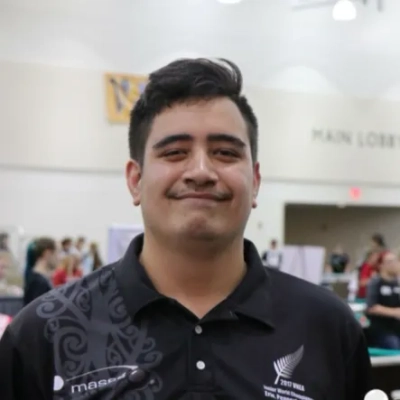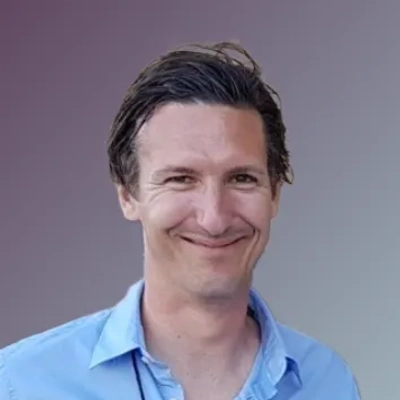14 Boundaries to Establish Early to Prevent Burnout and Preserve Passion
Burnout can silently creep into professional lives, threatening passion and productivity. This article presents expert-backed strategies for establishing crucial boundaries to prevent burnout and maintain enthusiasm. Discover practical tips for preserving your energy, creativity, and work-life balance in today’s demanding professional environment.
- Establish Emotional Boundaries to Preserve Passion
- Rediscover Joy Through Teaching Others
- Protect Personal Time from Professional Demands
- Prioritize Recovery to Sustain Energy
- Create Mental White Space for Creativity
- Set Deep Work Boundaries for Clarity
- Safeguard Personal Time to Recharge Passion
- Define Morning Routines to Stay Grounded
- Implement Evening Cutoffs for Work-Life Balance
- Enforce Strict Departure Times to Conserve Energy
- Schedule Regular Breaks to Maintain Perspective
- Allocate Time for Rest and Connection
- Limit After-Hours Support to Prevent Depletion
- Set Clear Work Hours to Maintain Balance
Establish Emotional Boundaries to Preserve Passion
Burnout is the ultimate thief of passion because it replaces your purpose with a feeling of resentment. In my work, I noticed it wasn’t just physical exhaustion; it was a cynical detachment that crept in. The deep empathy that fueled my desire to help others started to feel like a liability, and the work I once loved began to feel like a heavy weight. Passion requires emotional energy, and burnout creates an emotional debt that becomes impossible to repay.
The single most important boundary I wish I had established earlier wasn’t about managing my time, but about managing my transitions. I used to carry the emotional residue of my patients’ stories home with me, allowing my workday to bleed into my personal life. There was no clear line marking where “Dr. Narang” ended and “I” began.
My boundary now is a non-negotiable “shutdown ritual” at the end of each day. It’s a 15-minute buffer between my last session and my commute home where I do something completely unrelated to work, like listening to a specific music playlist or taking a short walk. This small act creates a clear mental and emotional firewall, allowing me to leave the weight of my work at the office so I can return to it the next day with the energy and clarity my passion requires.
 Ishdeep Narang, MD
Ishdeep Narang, MD
Child, Adolescent & Adult Psychiatrist | Founder, ACES Psychiatry, Orlando, Florida
Rediscover Joy Through Teaching Others
My worst burnout occurred long before Violinspiration even existed. I was a freelance musician and teacher, running between gigs and lessons, trying to piece together enough money to make a decent living. The violin, which had always been my greatest love, started to feel heavy in my hands. It wasn’t about the joy of the music anymore; it was a tool for survival, and I was starting to resent it for that.
The passion didn’t just fade; it felt like it was being squeezed out of me. The turning point came when I was trying to help a close friend, an adult beginner who was incredibly frustrated. He was trying to learn a song he loved and kept getting stuck. Forgetting the rigid methods I was used to, I just focused on helping him get past that one little hurdle.
When he finally played it, his entire face lit up with this look of pure, uncomplicated joy. In that instant, it clicked. The problem wasn’t the violin; it was the way I was sharing it. My real passion wasn’t just playing; it was helping someone else find that exact feeling.
That moment is the entire reason Violinspiration exists. I built it from the ground up to be a space dedicated to that single feeling of joy, especially for adult beginners who often feel left out. Rediscovering my own love for the violin came from seeing it through their eyes. Every time a student shares that they’ve played their first song, I get to relive that “aha” moment. It refilled a well that I thought was completely dry.
The one boundary I wish I’d established for myself back in those freelance days is almost painfully simple: to carve out time to play just for me. Not for a lesson, not for a gig, but just for the sake of my own enjoyment. It’s a non-negotiable part of my routine now with Violinspiration. It’s the time that reminds me why I fell in love with this instrument in the first place, and it keeps my own well from running dry. And honestly, it’s the only way I can keep showing up for my students with genuine energy and passion, instead of just going through the motions of a job.
 Julia Temeer
Julia Temeer
Founder, Violinspiration
Protect Personal Time from Professional Demands
Burnout is pervasive in the therapy profession. It begins during graduate school when we’re told, “Nobody gets into this field to make money.” Therapists are among the lowest-paid professionals with master’s degrees. This constant financial pressure, combined with the emotional demands of the work, gradually eroded my enthusiasm.
Looking back, I should have established stronger boundaries in my personal relationships much earlier. While I could mentally compartmentalize client problems as “work mode,” I failed to protect my personal time. As my therapy practice grew, I found myself with less energy for friends who unconsciously treated me as their unofficial therapist. Providing emotional support professionally and then again in my personal life created a perfect storm for compassion fatigue. It’s a common struggle for many helping professionals, where the very empathy that draws us to this work becomes depleted across all relationships.
 Allyssa Powers
Allyssa Powers
Therapist + Educator, Allyssa Powers
Prioritize Recovery to Sustain Energy
Burnout played a huge role in dimming my passion — it wasn’t that I stopped caring about the work, it was that I no longer had the capacity to enjoy it. Constant overextending left me exhausted, resentful, and disconnected from the very purpose that once energized me. Looking back, one boundary I wish I had set earlier was protecting my recovery time with the same importance I gave to deadlines and commitments. Had I treated rest as non-negotiable, I could have sustained my energy and preserved my passion instead of letting it get buried under survival mode.
 Karen Canham
Karen Canham
Entrepreneur/Board Certified Health and Wellness Coach, Karen Ann Wellness
Create Mental White Space for Creativity
In my early years building my company, I thought passion was an unlimited fuel source. I loved what I was doing, so I assumed I could just keep going — long nights, working through weekends, saying yes to every request. I convinced myself that “pushing through” was what founders were supposed to do.
But somewhere along the way, I noticed a shift. Tasks I used to enjoy started feeling heavy. The creativity that once flowed easily was harder to summon. I wasn’t burnt out in a dramatic, collapse-on-the-couch way — it was more of a slow dimming of the light. That’s when I realized burnout doesn’t just hit you physically; it erodes your connection to the very thing you care about most.
Looking back, the boundary I wish I’d set earlier was protecting mental white space. I used to think every spare hour should be filled with “productive” work. In reality, some of my best ideas have come while hiking, reading something unrelated to business, or just having a quiet dinner without my phone nearby. If I’d made it a non-negotiable to step away regularly — even for small breaks — I would have preserved my energy and perspective.
Now, I see rest as part of the work. Boundaries aren’t about doing less; they’re about making sure the time you do spend is fueled by genuine focus and creativity. If I’d understood that earlier, I think my passion wouldn’t have flickered — it would have burned more steadily for the long run.
Set Deep Work Boundaries for Clarity
Burnout didn’t just dim my passion — it distorted my perspective. There was a period where the drive to prove value, especially in a fast-paced legaltech startup environment, led me to treat urgency as the norm rather than the exception. I wasn’t just working long hours; I was mentally on call 24/7, constantly reviewing terms, anticipating risks, and trying to be “the safeguard” for everything. Eventually, that hyper-responsibility turned into emotional fatigue and creative stagnation.
What got lost in the process was the why behind my work. I love building systems that make legal accessible and intelligent — but burnout made everything feel like a reaction, not a creation.
The one boundary I wish I had set earlier? Protecting deep work time. I should have carved out non-negotiable space for strategic thinking instead of letting myself get pulled into every Slack ping, contract escalation, or last-minute compliance “fire.” Legal work demands clarity, and you can’t deliver clarity when your brain is in survival mode.
Now, I set clear windows for reactive vs. proactive work — and I push that same culture across the team. Boundaries aren’t just about balance — they’re about sustaining your ability to contribute meaningfully over time.
 Daria Turanska
Daria Turanska
Legal Manager, Faster Draft
Safeguard Personal Time to Recharge Passion
Burnout played a huge role in the moments when my passion felt like it was slipping away. In the early years of building my healthcare company, I thought working longer hours and saying yes to everything was the only way to be successful. Over time, I realized how it was draining my energy and my motivation to do my work every day. I also realized that pushing myself without proper rest or breaks would not make me more effective, but exhausted and less connected to the work I cared about.
Looking back at those times, one boundary I wish I had set earlier was protecting my personal time. Whether that meant ending my day at a set time or taking a real break on the weekend, those things could have already given me a chance to recharge my energy. It’s a great passion to always do your best at work, but don’t forget to recharge yourself as well to avoid burnout and stress. Create your space to recharge and rest to keep your passion and dedication at work healthy and thriving.
 Blaz Korosec
Blaz Korosec
CEO, Medical Director Co.
Define Morning Routines to Stay Grounded
Burnout did not come in one blow. It cut away gradually as I pretended that I could take more of it. I recall answering phone calls from people late at night, being on the phone with clients to coordinate emergency plumbing services during a dinner party, and agreeing to everything that I was asked, as it seemed that was just what it takes to build something worthwhile. It took away the pleasure of the job over time because the work was always available. I no longer paid attention to the beauty that we formed in spaces. Styling became mechanical. Guest care was like an administration. I was still appearing, but the fire had gone out of it. That disconnection complicated the ability to remain creative or even grounded.
I would have clearly defined my mornings. No emails, no calls, no meetings before 10 a.m. Mornings are the time when I can think properly and pay attention to what is important. That was something I gave away to inbox triage or to fix someone else’s urgent problem, and it left me reactive all day. That trend was more exhausting to me than I was willing to admit at the time. Holding that space would have altered the way I presented myself to all the rest. In retrospect, I should have had less effort and more structure. The job did not burn me out.
 Marta Pawlik
Marta Pawlik
Director, Laik
Implement Evening Cutoffs for Work-Life Balance
As a CEO, I do nearly everything, including product planning, addressing supplier problems, and handling customer complaints. Especially during my earlier years, I used to say yes to everything. I would spend part of my nights on the phone, check emails during dinner, and allow work to dominate my weekends. It gained momentum, but later on, it became very exhausting. I stopped thinking clearly, lost my temper, and I began to look at the business as a burden rather than something I was interested in developing.
I should have made a hard-and-fast rule: no work communication past a certain time in the evening. That habit would have protected my attention, helped me sleep, and kept me from carrying work stress into every part of my life. When your brain does not turn off, burnout sneaks in without you noticing. A boundary such as that would have made the hard years easier to bear.
 Kyle Sobko
Kyle Sobko
Chief Executive Officer, SonderCare
Enforce Strict Departure Times to Conserve Energy
Burnout snuck in when I stopped guarding my evenings. I would work late, after the final emergency call, clearing up emails, following up on invoices, and plugging holes in the schedule. At first, it felt like devotion. Months later, I was missing dinners with my partner, working through colds, and waking up with stress-induced headaches. That continual strain blunted everything; I was no longer excited to organize team meetings or to brainstorm about new service packages. Everything became mechanical.
Had I made a hard and fast rule of leaving at 6:00 p.m. and held to it, I would have conserved the energy that created this business. It’s a minor thing, but leaving work on time would have left me less tired in the morning, rather than exhausted before the sun was up. Leading others when you are operating on fumes is not a good idea. That boundary would have spared my weekends, my health, and my passion.
 Emily Demirdonder
Emily Demirdonder
Director of Operations & Marketing, Proximity Plumbing
Schedule Regular Breaks to Maintain Perspective
Burnout did not only dampen my enthusiasm. It caused me to doubt the whole direction in which I had been moving. I started my company over 20 years ago, and, in the early years, I was working seven days a week, 12 to 14 hours a day. I kept saying to myself it was temporary. I got to the point when I began to feel embarrassed about the growth and only pressure. Each minor problem was more weighty. All success seemed retarded. I no longer taught project management. I was coping with burnout.
I should have conserved my time much earlier by establishing boundaries on availability. In the early years, I used to do all the answering of emails, all the attending of trainings, and say yes to every opportunity that came across my inbox. That did not leave any room to rest or gain clarity. Had I blocked out one weekend every month and made it sacred or reduced client communication windows, it would have allowed me to adjust. Projects are not the only things to which structure applies. It also applies to the person running them. Lacking borders, even mission-oriented toils become robotic. The price is not only emotional. It hampers quality and decision-making. You begin to work in lag time and you become reactive instead of proactive. I would not allow it to go that far a second time.
 Yad Senapathy
Yad Senapathy
Founder & CEO, Project Management Training Institute (PMTI)
Allocate Time for Rest and Connection
Burnout does not simply exhaust you; it also adds weight to everything, including the motivation you initially had. I reached a point where the time and pressure of working so long and so much caused me to lose the adrenaline I previously felt when creating. If I had my time again, I would have set clearer boundaries earlier, definitely around holidays. Even a couple of hours to take a break, relax, and unplug can mean everything in a world where game server management can be a never-ending source of stress. As I found out at great expense, the thing that makes your passion so successful is balance, and boundaries prevent you from burning out. In their absence, even what you enjoy can begin to become a burden.
 Hone John Tito
Hone John Tito
Co-Founder, Game Host Bros
Limit After-Hours Support to Prevent Depletion
The burnout crept in gradually when I worked more hours, sometimes 12 to 14 hours per day. I thought that the harder I worked, the quicker the results would come, but in the long run, the fun and satisfaction in helping people were replaced with a sense of obligation. Forgetting rest days, dinner with friends, and time to unwind also made the job feel more overwhelming and draining. Passion dies when the basics of rest and connection are neglected.
The boundary I should have set previously was to allocate time for recovery. Small things like not working after 8 PM or not doing work on Sunday mornings would have kept me energized for the week. I remember one afternoon with family giving me more focus than an entire week of late nights at my desk. Small boundaries like that can preserve passion far better than endless hours of effort.
 Matthew Tran
Matthew Tran
Engineer and Founder, Birchbury
Set Clear Work Hours to Maintain Balance
The one boundary that would have prevented burnout was to say no to evening quick fixes. The employees were reluctant to reject late calls, which blurred the boundary between their working and personal lives. I experienced this myself with a technician who burnt out in eighteen months due to answering parents’ emails at midnight.
It was an easy but harsh correction. We established that ICT support would close at 5 p.m., and any urgent requirements must be channeled through the headteacher, not directly to the staff. Surprisingly, 80 percent of so-called urgent requests were, in fact, not urgent. This change led to employees reclaiming their evenings, and burnout reduced significantly.
After all, it is not a matter of working harder or being inspired to protect what you love. It is about managing the access points that deplete your energy.
 Mark Friend
Mark Friend
Company Director, Classroom365







